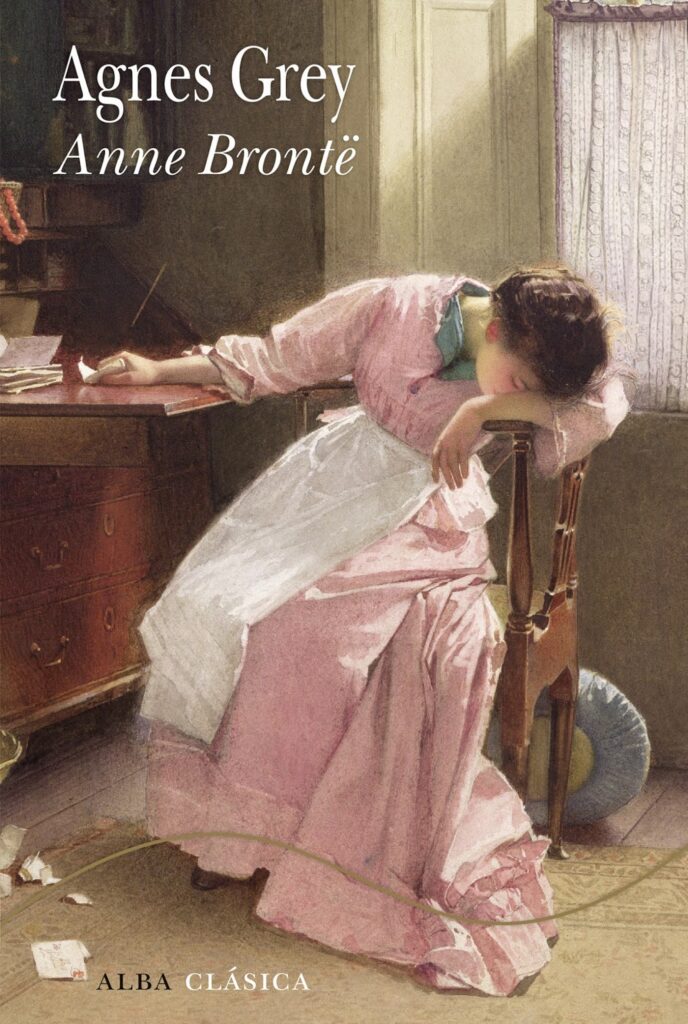I was meaning to write about Agnes Grey by Anne Brontë for a very long time. However, work and other unnecessary and inconsequential matters tended to overshadow my earnest wish to do so. Although I have already read novels written by her more well known sisters such as Emily and Charlotte, Anne Brontë stands apart from the rest due to the simplicity of her emotions. Agnes Grey is filled with the importance of being good and the need for living a life more earthly and fulfilling than getting entrapped by the outwardly gaudy life of contemporary Victorian England. Agnes Grey, the protagonist is more happy within the secluded surroundings of the simple pastoral life that her family tends to celebrate than within the four walls of the Victorian bourgeois life where she has to earn her living as a governess. Indeed her adventures or misadventures (in most cases) during her tenure with two different families as a governess is what the main plot of the novel is about.
Having said that, the reader simply cannot ignore Edward Weston the hero of the novel whom the novelist presents in more a cordial light than Heathcliffe of “Wuthering Heights” or Mr. Rochester of “Jane Eyre”. Weston is the solid clergyman who happens to be around Agnes whenever she needs him and provides her with his shoulder whenever she encounters some misfortune. Edward Weston is in fact one of the most reliable male characters ever created in fiction. The only other person who may rival him in matters of reliance is Sydney Carton from “A Tale of Two Cities”.
The beauty of the novel however lies in its language and the values of simplicity and homeliness that the authoress wishes to make her readers acquainted with. Pastoral and church life is elevated as being far above the ostentation of modern city life. Further, the novelist also articulates elaborately upon the dark underbelly of Victorian alliances comprised through marriages based on money and wealth. In comparison to the marriage alliances forged by her wards, Agnes succeeds in the end in marrying the man she loves simply for domestic harmony and nothing else to overshadow the union.
I would recommend Agnes Grey to all primarily for its immaculate language, old world emotions and a general feeling of peace that the novel tends to shower upon its readers. The novel is short and succinct, and yet it carries within its folds a wonderful feeling of tranquility and bonhomie that one can associate with a world long gone and long obliterated from the present world known to the modern man or reader. A world unknown and lost within the sands of time. A world that had existed long before old pastoral England became industrialized. A world of simple village folks untouched by the complexities of modernism.
So much for now. Au revoir !

👍👍
Thank you very much 🙂
Thank you for this recommendation. I must admit I have not read Anne Brontë’s “Agnes Grey” or anything else by her. I’ve read her sisters’ works, of course. But I often choose to read certain books for the qualities you have mentioned here: for a work’s use of language and “wonderful feeling of tranquility and bonhomie that one can associate with a world long gone and long obliterated from the present world known to the modern man or reader. A world unknown and lost within the sands of time.” This sounds like a book I would very much enjoy.